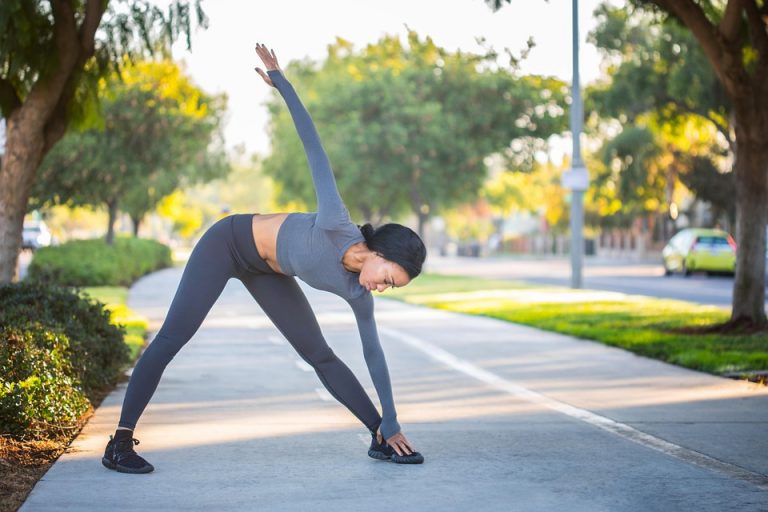Finding ways to improve your sleep quality can feel like a never-ending battle. You’ve tried counting sheep, warm milk, or tossing and turning until dawn breaks. What if I told you that nature has your back? Yes, there are powerful herbs waiting to help you drift off into dreamland.
Sleep is not just a luxury; it’s a necessity. It affects your mood, your energy levels, and even your overall health. Poor sleep can lead to a cascade of issues, from anxiety to chronic illnesses. By embracing the right herbs, you can enhance the quality of your sleep, giving you the rejuvenation you deserve. Let’s dive into these seven magical plants that can transform your nights and brighten your days.
Contents
- 1. Chamomile: The Classic Sleep Inducer
- 2. Lavender: The Sweet Scent of Tranquility
- 3. Valerian Root: The Sleepy Time Herbal Remedy
- 4. Passionflower: Nature’s Calming Agent
- 5. Lemon Balm: The Relaxing Citrus Herb
- 6. Ashwagandha: The Adaptogenic Wonder
- 7. Hops: The Sleep-Inducing Flower
- How to Incorporate These Herbs into Your Routine
- Bottom Line
- FAQs
1. Chamomile: The Classic Sleep Inducer
Chamomile is a household name in the realm of sleep aids. Its gentle, floral aroma wraps around you like a warm blanket, calming your nerves. Research shows that chamomile contains antioxidants that may promote sleepiness and reduce insomnia.
- How to Use: Brew a cup of chamomile tea about 30 minutes before bed.
- Benefits: Not only does it help you relax, but it can also improve overall sleep quality, making you feel more refreshed in the morning.
2. Lavender: The Sweet Scent of Tranquility
You may already know that lavender is a staple in aromatherapy, but its benefits extend far beyond a lovely scent. Studies have shown that the inhalation of lavender oil significantly increases deep sleep and decreases daytime fatigue.
- How to Use: Add a few drops of lavender essential oil to your pillow or use a diffuser in your bedroom.
- Benefits: It not only helps you fall asleep faster but also improves the quality of your sleep, leaving you more alert the next day.
3. Valerian Root: The Sleepy Time Herbal Remedy
Valerian root is known for its powerful sedative properties. This herb has been used since ancient times for its ability to relax the mind and body. It works by increasing levels of a neurotransmitter called gamma-aminobutyric acid (GABA), which calms the nervous system.
- How to Use: Take valerian root in capsule form or as a tea one hour before bedtime.
- Benefits: It can reduce the time it takes to fall asleep and enhance the quality of sleep, making it perfect for those restless nights.
4. Passionflower: Nature’s Calming Agent
If anxiety keeps you tossing and turning, passionflower might be your new best friend. This herb works wonders in calming the mind and reducing anxiety, making it easier to drift off to sleep.
- How to Use: Drink passionflower tea or take it as a supplement before bed.
- Benefits: It can help alleviate insomnia and improve sleep quality, ensuring you wake up feeling rejuvenated.
5. Lemon Balm: The Relaxing Citrus Herb
Lemon balm is more than just a delightful addition to your herbal tea. It has been shown to improve sleep quality and reduce anxiety. Its subtle lemony scent can uplift your spirits while calming your mind.
- How to Use: Brew lemon balm tea before bedtime or add it to your favorite nighttime blend.
- Benefits: It not only enhances your sleep but also promotes a sense of relaxation throughout your night.
6. Ashwagandha: The Adaptogenic Wonder
Ashwagandha is an adaptogen, meaning it helps your body manage stress. This powerful herb has been used in Ayurvedic medicine for centuries and is known to support overall well-being.
- How to Use: Take ashwagandha in capsule form or as a powder mixed into warm milk before bed.
- Benefits: Not only does it help you unwind, but it can also improve sleep quality, making it ideal for those dealing with stress-related insomnia.
7. Hops: The Sleep-Inducing Flower
Familiar to you in beer, hops is not just for brewing. This flower has calming properties that can help you relax and prepare for sleep. It’s especially effective when combined with valerian root for a one-two punch against insomnia.
- How to Use: Use hops in tea form or as a supplement.
- Benefits: It helps reduce anxiety and improve sleep quality, ensuring you wake up feeling refreshed.
How to Incorporate These Herbs into Your Routine
Now that you know about these incredible herbs, how do you incorporate them into your nightly routine? Here are some easy tips:
- Tea Time: Create a bedtime ritual by enjoying a soothing herbal tea blend that includes chamomile, lemon balm, or passionflower.
- Aromatherapy: Use essential oils in a diffuser or apply them to your pillow before sleep.
- Supplements: Consider herbal supplements, especially for valerian root or ashwagandha, if you prefer a more concentrated approach.
- Mindfulness: Pair your herbal intake with relaxation techniques like deep breathing or meditation for maximum effect.
Bottom Line
Improving your sleep quality doesn’t have to be a daunting task. With these seven powerful herbs, you have the tools to enhance your nights and energize your days. Whether you choose chamomile’s calming tea or the soothing scent of lavender, remember that taking care of your sleep is an act of self-love.
So go ahead, prioritize your sleep. Your body and mind will thank you.
FAQs
1. Can I mix these herbs?
Absolutely! Many of these herbs complement each other beautifully. Feel free to create your own herbal blends.
2. Are there any side effects?
Always consult with a healthcare professional before starting any new supplement, especially if you are pregnant or on medication.
3. How long before bed should I take these herbs?
Generally, taking them about 30 minutes to an hour before bed is recommended for optimal effects.
Embrace the power of these herbs and transform your sleep tonight. Sweet dreams await!
Get Your FREE Natural Health Guide!
Subscribe now and receive our exclusive ebook packed with natural health tips, practical wellness advice, and easy lifestyle changes, delivered straight to your inbox.




